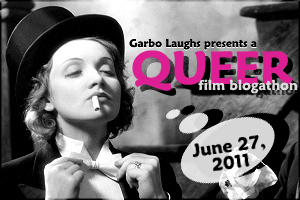Iron Man 3 (2013, directed by Shane Black) is generally a smarter movie than any other superheroic part three I can think of. Other part threes--Superman III, Batman Forever, Spider-Man 3, X-Men: The Last Stand--almost always seems like retreads or one too many trip to the well. Most of these movies tick off the supervillains that haven't previously appeared in their respective series, and here, Iron Man has something of an advantage. Since there isn't really a signature Moriarty to Iron Man's Holmes, the filmmakers are pretty much free to do what they want. True, they make good, somewhat, on the first film's promise of The Mandarin, but they do it in a way that is likely to send some types of hardcore comics fan screaming to the social networks in a frothing rage. Good for the filmmakers. Iron Man 3 also realizes something that is unique to its particular set of characters: we're not as interested in Iron Man as we are in Tony Stark. Compare this with, say, Bruce Wayne, and you'll realize how different that is from most other superheroes. New series director Shane Black seems to share this opinion: he spends the entire movie depriving Stark of his armor, perhaps as a gentle riposte to Captain America's jibes at Stark in The Avengers. What is Stark without his armor? That's what this film wants to find out.
Note: here be spoylerrs, but you've probably seen this film by now anyway. Fair warning.
The plot here begins in 1999, when Stark attended a Davos-style conference in Switzerland. This is the same conference that Yinsen mentioned in that cave in Afghanistan and sure enough, Yinsen is there in the background. Tony doesn't notice him, though. He has eyes for one Maya Hansen, a biological researcher who is intent on picking Stark's brain to figure out what's wrong with the regeneration virus she's engineered. It has a big flaw: the organisms she injects with the virus regenerate, but then they explode. Also on hand is Stark wannabe Aldrich Killian, who wants to enlist Stark in a new venture. Stark tells Killian to meet him on the roof, then blows him off to spend the night with Maya Hansen. In the morning, Stark blows her off, too, though he does leave her a card with some notes on the back of it. Fast forward. The movie's present tense takes place shortly after the events of The Avengers, with Stark suffering form PTSD after his trip through the wormhole and subsequent fall to earth. His view of the world has changed. His priorities have changed. He can't sleep for fear of losing the people who are important to him. First among them is Pepper Potts, who is still the CEO of Stark's company, but who has also moved in with him as their relationship has deepened. Pepper, for her part, is coolly efficient when it comes to running the company, but is less happy about Stark's hobbies and his inability to sleep. She finds herself in a meeting with an old suitor, one Aldrich Killian, though Killian is hardly recognizable as the man from Switzerland all those years ago. He's now suave, sophisticated, and predatory. Happy Hogan, for his part, has been promoted from driver to head of security, and he smells something funny about Killian's assistant. He follows him. In following him, he finds himself at the site of a bombing attack by a terrorist called The Mandarin, a Bin-Laden-style demagogue who is intent on teaching the United States a series of "lessons." Hogan discovers something about the bomber and the nature of the bombs, but the explosion puts him into a coma. Stark vows to avenge him on national TV, so The Mandarin takes him up on it. He sends a squadron of helicopter gunships to Stark's Malibu home and blows it into the sea. Stark escapes, but he's presumed killed. Instead, he's on his own with a malfunctioning suit of armor that crashes him somewhere in Tennessee. He has to rely on his own resources to figure out who his real enemy is, and how to counter him. This is difficult with a seeming army of radioactive assassins/human bombs hot on his trail. Meanwhile, The Mandarin makes his move against the President, who is guarded by Rhodey in a revamped "Iron Patriot" armor, and Killian makes a move against Pepper Potts in the hopes that it will convince Stark to do what he wants. But Tony has other ideas...
Three weeks after the fact, I'm still not sure what to make of Iron Man 3. The conventional wisdom circulating since its release is that it's better than the second film. I don't know about that. Neither film is as good as the first, and the reason isn't hard to see. The first one had a clarity of ideology. It was clearly taking sides during one of the few points in time when it was relatively safe to do so without sacrificing box office. Released at the tail end of the Bush administration, it's informed by a healthy distrust of American adventurism in Iraq and Afghanistan. Stark in that film is a neo-con who has a come to Jesus moment and repents. The second film is far murkier. Like most big tentpole movies that think about the politics of their images at all, it refuses to pick a side. It's a film that is notable by its lack of conviction. It simultaneously lionizes a Randian superman while critiquing the wisdom of investing that much power in one man, particularly one who is notably unstable. That film was further confused by its need for franchise-building in the run-up to The Avengers. This film is a snake pit of ideological images.
There are two things that suggest a film more in line with the original item, while simultaneously defusing any ideological leanings one might bring to the film. The first is the revelation that The Mandarin is a sham, a bad actor cast in the part as a front for the film's real villain. Close readers of the comics will recognize the real villains immediately, when Killian names his proposed think tank "A.I.M." In truth, I'm disappointed that this didn't result in an appearance by MODOK, but that would just be ridiculous, my fangirl desires not withstanding (still, if the Captain America movies are using Arnim Zola....). But nevermind all that. The Mandarin is a direct attack on the "war on terror" as an unfunny farce. Terrorism, like every other political movement in the world, is a matter of public relations. This was already true during the Bush administration. It's still true five years later. The second image is a gentle rebuke to both the promise and the reality of the Obama administration. During Rhodey's jaunt around the world looking for The Mandarin's bomb factories as "The Iron Patriot," Rhodey is fulfilling a role that in the everyday world is being performed by drones. The difference with Rhodey is that he's on the ground and has to look into the faces of the people he's terrorizing and shows the restraint of a good and moral soldier. Under his aegis, there will be no unintended consequences. No collateral killing. Would that the real world Joint Security Operations Command, who run the current drone program, could be so infallible. This is generally a case where I can be philosophical. The Obama administration is not conducting itself well in matters of war, so this may be beyond ideology. A matter of decency, perhaps. The film muddies this piece of satire at the end when Tony summons dozens of unmanned Iron Man suits to act as drone warriors. It's like it doesn't really know which way to jump on this issue even as it has an intuitive grasp of which way it should jump. Alas. This film also has a scathing view of our elected officials. Both of the heads of state in this film (played respectively by William Sadler and Miguel Ferrer) are utterly corrupt. The complicity of the Vice President in an assassination attempt on his boss is the kind of thing that would cause political chaos, something with which this film is completely unwilling or unable to engage. Instead, it's a throwaway plot device.
As a cinematic structure, Iron Man 3 suffers greatly from the comparison with other superhero movies. The touchstone for its plot is, surprisingly, The Incredibles, with Aldrich Killian filling the role of Buddy Pine ("I'm your number one fan"), both as inept would-be partner and as suave, super-powered nemesis. In some ways, this film doesn't want to be a superhero movie at all. It's hellbent on stripping Stark of Iron Man and in so doing, it veers into the territory of a Bond film. Mind you, there's justification for this in the comics. Stark has been part of Marvel's Bond knock-off, SHIELD, from the get-go. You also have director Shane Black himself asserting his own a cinematic anima, as the film becomes a variant of the buddy action films Black pioneered. It all manages to hang together somehow, but only just. This is a film that might have benefited from a more singular style, but big tentpole movies rarely manage this in the first place. It is what it is. Like Iron Man 2, this is a film that places its best action sequence well before the climax, to its detriment. In this case, it's a bravura sequence in which Iron Man has to rescue fourteen people who have been blown out of an airplane. This scene is a tour de force, apparently done as a real-world stunt, and reinforces this film's relationship to the Bond films and their occasional aerial set-pieces, but it tends to make the film's finale seem anti-climactic.
I still maintain that the best part of the Iron Man films is the relationship between Stark and Pepper Potts, and that's still true, even though this film contrives to separate them both for most of its running time. It throws in a bunch of other monkey-wrenches on top of this. This film throws a bone to women by putting Pepper into the armor for a (very) brief time, and then "inverts" her role as a damsel in distress by having her acquire super powers through Killian's Extremis virus, but it does this out of the side of its mouth sometimes. You still have scenes of Pepper being kidnapped and tormented by the villain(s) and at the end of the film, she almost becomes a fetish figure. Rebecca Hall's Maya Hansen fares less well. I've mentioned in the past that I can watch Hall in just about anything, but this tests that proposition. She's mostly wasted in a thankless role that sees her first as a sex object for Tony to conquer, then as a Bond villain henchman, and not even a menacing one. She's the henchwoman who the villain kills to show how much of a bastard he is.
New to the Iron Man universe is an awareness of how Iron Man is perceived by the public. This is transmitted mostly through Stark's relationship with Harley Keener, a kid in Tennessee who offers him refuge after the bad guys destroy Tony's Malibu house. I don't know how I feel about this, because it's not "cute" really, but it's awkward. This is reinforced by being the plot thread that deals with Tony's PTSD. As awkward as this is, it's still not nearly as awkward as the spectacle of the 1999 version of Happy Hogan dressed as Vincent Vega.
Mandarin excepted, I wish the villains were more interesting. In principle, I'm down with Radioactive Man being conflated with the Mandarin with aim, but the echoes of Buddy Pine kind of spoil it for me. Killian's army of Extremis soldiers have a depressing lack of character. Ben Kingsley's version of The Mandarin, and his alter ego, however, is gold. He's such an unexpected and creative interpretation of the character. I also wish the film didn't turn the Iron Man armor into so many unmanned (and fragile) drones. The action climax tends to resemble the climax of Iron Man 2, with the same unfortunate devolution to an undistinguished light show.
One thing I did take away from Iron Man 3: I would pay good money to watch Robert Downey, Jr. and Gweneth Paltrow as Nick and Nora Charles in a remake of The Thin Man. Seriously.


















No comments:
Post a Comment